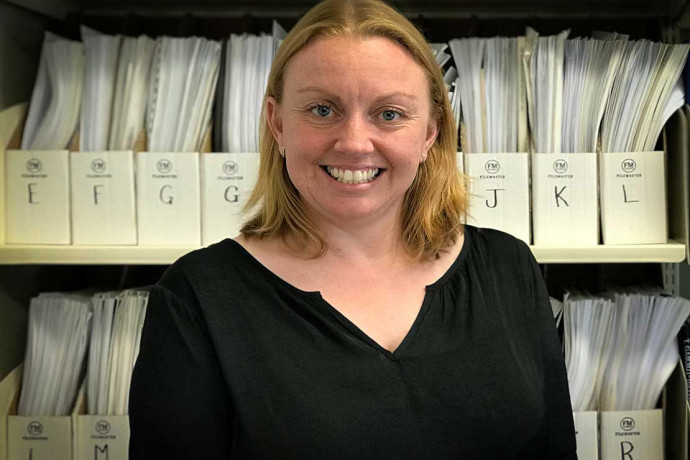Karen Stockin

Dr Karen Stockin, Massey University Albany, Animal Welfare Science and Bioethics Centre, has been awarded a Rutherford Discovery Fellowship for research entitled: ‘The application of Artificial Intelligence (AI), innovative technologies and evolutionary theory to address the conservation-welfare nexus during human-wildlife interactions.’
Biography
Dr Karen Stockin is a Senior Lecturer in the Institute of Natural and Mathematical Sciences, Albany and an Associate Investigator with the Animal Welfare Science and Bioethics Centre at Massey University, Palmerston North. She obtained her Bachelors of Science (Honours) from the University of Plymouth, and her Masters of Science as a European Union Scholar from the University of Aberdeen, United Kingdom. She completed her PhD as a Commonwealth Scholar from Massey University in 2008. Since this time, she has served as the Research Director of the Coastal-Marine Research Group at Massey University. Dr Stockin has been twice nominated (2008 and 2010) for the UNESCO-L’OREAL Fellowship for Young Woman in Sciences, and she is the inaugural recipient of the Bob Kerridge Animal Welfare Fellowship. In 2018 she was further appointed to the secretariat of the International Whaling Commission as Strandings Coordinator. Her research interests combine ecology, ethology, policy and anthropogenic activities affecting marine mammal populations. Her main focus is the application of animal welfare science to human-wildlife interactions.
Research Summary
New Zealand has an international reputation for a high frequency of mass whale strandings. Despite costly and often logistically challenging attempts to rescue live whales, a lack of scientific evaluation underpins current decision-making processes around this endeavour. Currently, scientific research on whale strandings focuses solely on causation, while matters of conservation (survivorship/fitness) and animal welfare (stress/injury), remain undetermined. Without science-driven management, those responsible for the management of stranded marine mammals may inadvertently cause significant detrimental impacts for the animals they seek to assist.
Dr Stockin works at the forefront of the emerging field of conservation welfare with the aim of improving outcomes for both species (conservation) and individuals (welfare). She will apply artificial intelligence technology (Bayesian belief networks) to challenge existing human psychology associated with whale strandings, and to determine what factors underlie a successful release from both a conservation and welfare perspective. Given the propensity of individual whales to immediately restrand upon release, Dr Stockin will further assess matriarchal leadership/followership paradigms via experimental manipulations and post-release drone monitoring of whales following stranding rescues. This will provide first proof of concept that evolutionarily-induced leadership can, even under duress, improve welfare and conservation outcomes for rescued, rehabilitated and/or translocated species globally.
